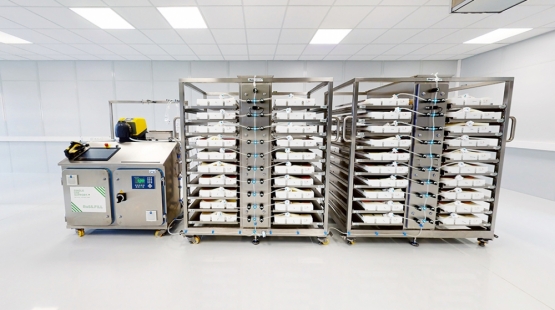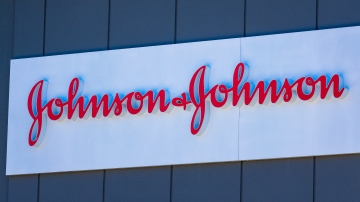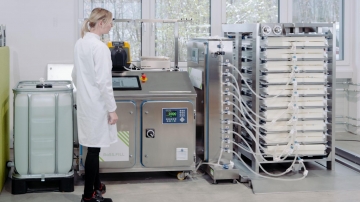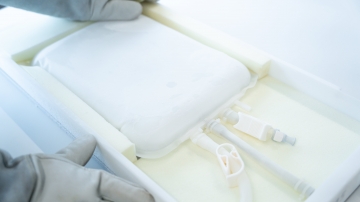Monoclonal antibody production process: a comprehensive guide
Table of contents
ShowThe monoclonal antibody production process is the igniting spark in the manufacturing of countless biologics. These specialized agents have reshaped treatment methodologies, diagnostic possibilities, and research approaches. However, producing monoclonal antibodies is an extremely sophisticated process with no room for mistakes, as patient safety, research, or commercial progress might be at stake.
In this article, we will discuss the production of monoclonal antibodies along with its hurdles, relevant manufacturers, and current trends. These will also lead us to the discovery of innovative solutions for mAb manufacturing. But first, let’s take a brief look at what makes monoclonal antibodies so unique.
What are monoclonal antibodies?
Monoclonal antibodies (mAbs) represent lab-engineered proteins emulating the body's natural immune system. Unlike polyclonal antibodies originating from a natural immune response, mAbs derive from a single cell clone, ensuring high specificity in targeting a singular antigen.
The precision of these immunoglobulins is used in tailored therapies, advanced diagnostics, and pioneering research not only in immunology. For biotechnology, they are therefore essential cornerstones in biopharmaceutical manufacturing.
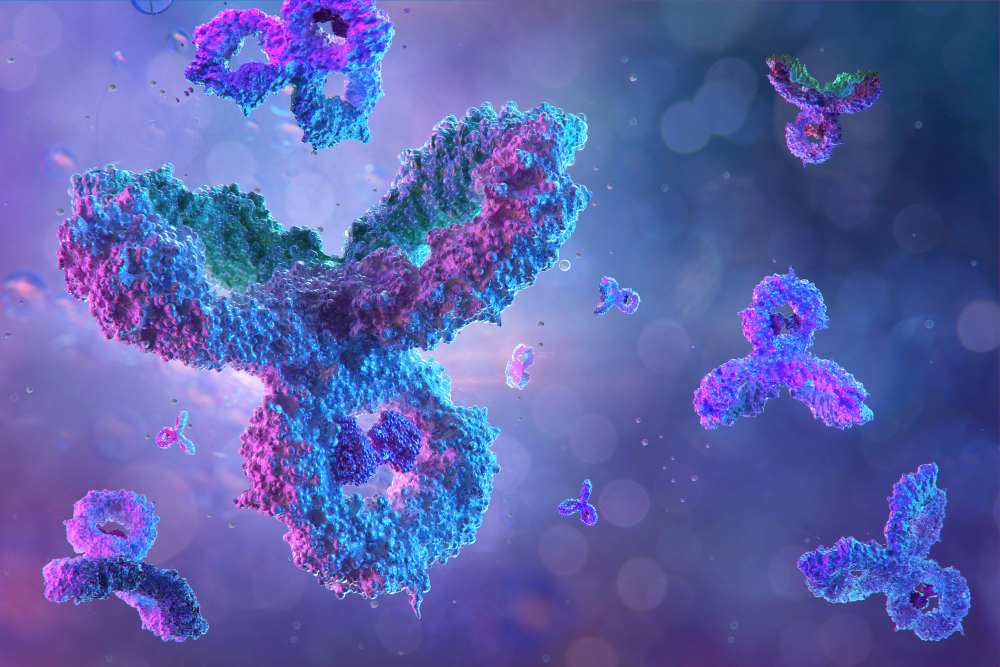
Monoclonal antibody production steps
The steps along the production of monoclonal antibodies can be divided into two distinct phases: upstream processing and downstream processing.
Upstream processing lays the foundation for mAb manufacturing, encompassing the initial stages from cell culture to the generation of antibody-producing cell lines. It's the inception phase where cells are cultivated.
Downstream processing, on the other hand, takes the generated antibodies and refines them, ensuring purity and efficacy. This phase involves steps like purification, formulation, and storage, crucial for delivering high-quality monoclonal antibodies.
In the subsequent chapters, we will illustrate the different process steps in more detail, which can briefly be summarized as follows:
Upstream processing
- Cell cultivation: Culturing specific cells to initiate antibody production.
- Selection of antibody-producing cell lines: Identifying and isolating cell lines capable of producing the desired antibodies.
- Cell expansion: Scaling up the cell culture in bioreactors to generate larger quantities of cells for antibody production.
- Antigen stimulation: Stimulating cells to enhance antibody production against specific antigens.
- Harvesting cells: Collecting cells and isolating the desired antibodies.
Downstream processing
- Purification: Separating and purifying the desired antibodies from the cell culture medium.
- Formulation: Creating the final composition of the antibody product for stability and efficacy.
- Quality control: Conducting tests to confirm the purity, potency, and safety of the antibodies.
- Filling, packaging, and storing: Preparing the antibodies for storage, distribution and use in various medical applications.
Read more: What is upstream and downstream processing?
Hybridoma technology vs. phage display method in upstream processing
Hybridoma technology relies on merging B cells with myeloma cells, fostering the creation of hybridoma cell lines that produce specific antibodies in a controlled laboratory setting. These cell lines are cultured in vitro, stimulated through immunization to generate antibodies tailored to specific epitopes.
Contrastingly, the phage display method involves using recombinant antibodies displayed on phage surfaces, allowing for the selection and identification of desired antibodies targeting specific epitopes. This method provides an alternative to traditional hybridoma technology, enabling the development of recombinant antibodies using microbial or mammalian cells, such as CHO cells, in vitro.
Once suitable cell lines have been found via extensive characterization, they are ready for multiplication in bioreactors and prompted to start antibody expression.
Downstream processes in monoclonal antibody manufacturing
Downstream processing begins with purification, where techniques like chromatography are employed to separate and isolate antibodies from the cell culture medium. This step is performed to eliminate impurities, guaranteeing the production of high-quality antibodies ready for use in medical treatments or diagnostics.
Formulation is another crucial step in downstream processing to ensure the stability and potency of the antibodies. This step determines the efficacy of the antibodies in their intended applications within the medical field, and may include measures like conjugation in order to generate antibody drug conjugates (ADCs).
Quality control measures are rigorously implemented throughout the downstream processing phase. ELISA assays and stringent quality checks are conducted to verify the purity, potency, and safety of the antibodies. This guarantees that the antibodies meet the highest quality standards before being introduced into the medical domain.
Packaging marks the final stage in downstream processing. Proper packaging ensures that the purified antibodies are stored and distributed in a manner that maintains their quality and efficacy until they are ready for use. This includes maintaining aseptic conditions during filling into bioprocess containers, as well as temperature-controlled preservation, often performed via plate freezing.
Who manufactures monoclonal antibodies?
There are numerous manufacturers of monoclonal antibodies on the market – which is only reasonable, considering the increasing prosperity of this biotechnological sector. The manufacturing process, however, is rather laborious and requires not only professionalized know-how, but also professional equipment and resources.
Therefore, many biotech companies rely on the services of CDMOs, engaged in custom antibody production for various purposes. But of course, inhouse mAb production is just as possible if prerequisites are given.
Although without claims of completeness, here is a list with examples of monoclonal antibody manufacturers:
- Merck
- AbbVie
- Pfizer
- Novartis
- Bayer
Source: Bioprocess Online1
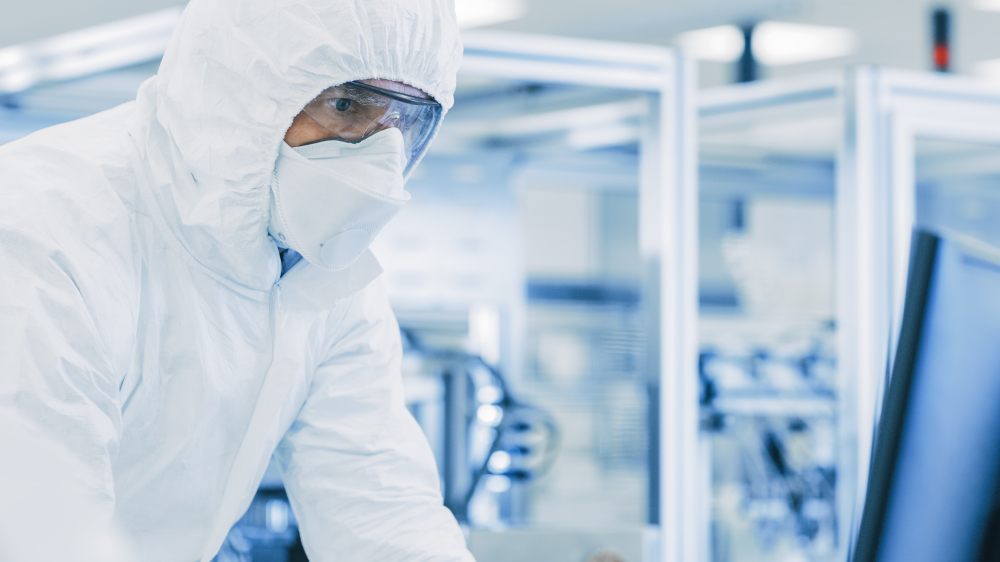
Challenges in mAb production
Producing monoclonal antibodies poses a spectrum of challenges, from technical intricacies in production to ensuring product quality and addressing evolving market demands. The diligence required to preserve the quality of monoclonal antibodies is as important as creating an environment that protects staff, too. After all, biologics like ADCs (antibody drug conjugates) involve highly toxic substances – exposure has to be avoided at all costs.
Production scale-up, flexibility, and costs add up to the list of hurdles that have to be taken for successful mAb production. In the following chapters, we will look at some of these challenges more closely.
Read more: Challenges of mAb production
Safe handling of monoclonal antibodies
Ensuring the safe handling of monoclonal antibodies requires close attention to maintain their efficacy, prevent adverse side effects due to their high immunogenicity, and avoid exposure.
Additionally, considering potential enzymatic activity in some mAbs, cautious handling and storage protocols are essential to prevent degradation or alteration, preserving their therapeutic efficacy. Furthermore, staff and the environment has to be protected from exposure.
Scaling mAb production
For many manufacturers, there comes the time when scaling up mAb production is advised. When high throughput of large quantities with high titers is required, measures have ideally already been taken to pave the way for a smooth increase of production volumes.
Nevertheless, monoclonal antibodies have to be produced at consistent quality levels at every scale. Therefore, every production step needs to be optimized for seamless scale-up with no quality loss or preventable downtime. This, however, necessitates anticipation and thorough planning when establishing mAb production processes, which is why many manufacturers rely on systems that allow for facilitated scalability.
Overlooked costs in mAb production
Costs in mAb production have to be kept low not only in favor of commercial success, but first and foremost to make these therapies as accessible as possible to the public. This becomes even more challenging as there are several aspects to be considered.
One major factor that drives costs in mAb production is staff expenditure. Also, skilled personnel – be it for small research laboratories or pharmaceutical bulk production – is hard to find and needs special training.
Automated systems are a viable approach to optimize the commitment of professionals. Operators can be reallocated to where they are really needed. However, personnel is only one of several, often underestimated or overlooked costs in monoclonal antibody production.
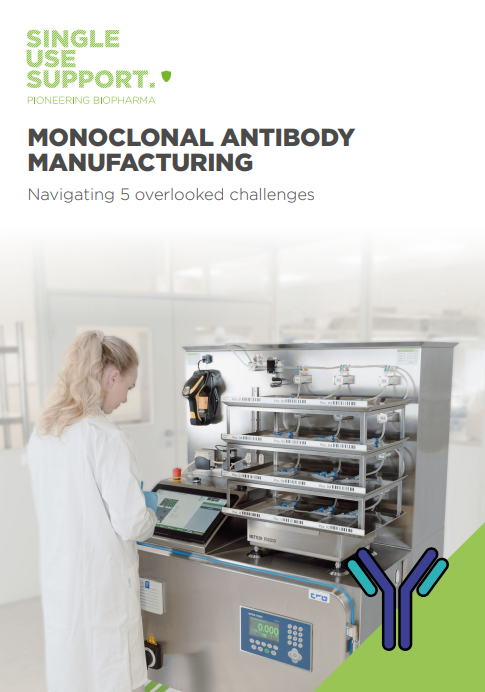
Download Guide
Navigating 5 Overlooked Challenges in Monoclonal Antibody Manufacturing
Trends in mAb production
Trends in monoclonal antibody production are significantly driven by the increased request for these proteins. New ways have been and are being investigated in order to bring mAb manufacturing to a larger scale, without compromising on quality or safety.
Consequently, great effort is being made to optimize mAb production, with innovations in fields like vector design, cell line development, culture media optimization, and the use of novel reagents and bioreactors, such as hollow fiber bioreactors or wave bioreactors.2
There is also a noticeable increase in the implementation of single-use technologies in monoclonal antibody production, bringing advantages like high safety, cost-efficiency, flexibility, and sustainability.2
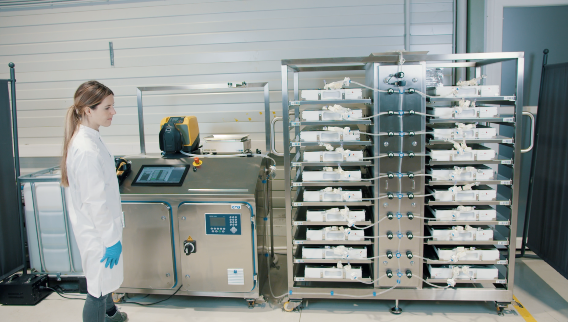
Solutions for mAb development and manufacturing
Mentioning the trend towards single-use solutions for mAb development and manufacturing, disposable components and flexible systems are leading to significant increases in flexibility, scalability, and efficiency.
Providers like Single Use Support have specialized on dedicated platform systems that are designed to optimize processing practices that are found along the entire production chain. This spans from aseptic fluid management and elaborated freeze/thaw processes to dedicated storage and shipping solutions.
Solutions for automated aseptic filling of monoclonal antibodies
For good reason, maintaining aseptic conditions in mAb manufacturing is considered indisputably necessary. Regulatory authorities like FDA and EMA are vigilant to ensure that therapies entering the market are safe for use. And while the individual mechanism of action of biologics is to be assessed individually, being free from unwanted contaminants is a universal requirement.
Therefore, solutions for aseptic filling of monoclonal antibodies have to be deployed. One particular challenge these systems have to cope with is the high viscosity of many protein solutions.3 Additionally, they have to be as efficient as precise at every scale.
Thus, Single Use Support has developed RoSS.FILL as an aseptic filling platform that is able to cater to the unique requirements in mAb manufacturing. The platform includes solutions for various scales of monoclonal antibody production, making end-to-end processes with Single Use Support all the more scalable and flexible.3
Freeze/thaw processes in monoclonal antibody production
Evaluating freeze/thaw processes in monoclonal antibody production includes the determination of adequate storage temperatures as well as freeze/thaw rates. As these biologics are not suitable for long-term storage at room temperature, manufacturers have to implement dedicated solutions for monoclonal antibody preservation.
As plate freezing is an approach with several benefits in the preservation of biologics – such as a reduced risk for damaging effects like cryoconcentration –, Single Use Support has developed the plate freezing platform RoSS.pFTU. These systems allow for advanced control over cooling rates and are able to freeze various volumes of mAbs with no cutbacks on quality.
Monoclonal antibody storage and shipping
Once frozen, monoclonal antibody storage follows seamlessly, possibly including shipping. Yet again, temperature control is essential – especially for long term storage. Here, it is vital to ensure stable temperatures.
Single Use Support meets the high standards in mAb production with RoSS.ULTF – an ultra-cold storage freezer that offers extremely consistent temperatures and close temperature monitoring. Additionally, the machine comes with high storage density, being extremely efficient in storing bioprocess containers in different formats, covered in protective shells like RoSS® Shell.
Safely preserved for shipping and storage, frozen monoclonal antibodies are now ready to make their contribution in research, diagnostics, or therapeutics.
Holistic approaches in mAb production
By opting for closed end-to-end solutions by Single Use Support, monoclonal antibody manufacturers can profit from an enhanced level of efficiency, safety, and reliability. Scalable processing systems for fluid and cold chain management allow for a future-proof and flexible production environment.
Based on single-use technologies, costs, efforts, and resources for extensive cleaning can be reduced as well. On the other hand, automated procedures can enhance safety levels by reducing the need for human intervention at delicate stages in mAb manufacturing.
FAQs about monoclonal antibodies
What are monoclonal antibodies?
Monoclonal antibodies are immunoglobulins that are produced in vitro with the purpose of binding to specific epitopes. They target specific molecules, such as receptors or antigens, on cells and trigger immune responses to eliminate disease-causing agents.
How much does it cost to produce monoclonal antibodies?
The production cost of monoclonal antibodies varies significantly due to factors like scale, technology, and facility needs. It encompasses expenses for raw materials, equipment, labor, and ongoing operational costs. While it's challenging to provide exact figures, we came across examples. An annual mAb therapy in oncology can cost around $100,000. Producing one mAb can range from $6,000 to $15,000. It's essential to note that precise numbers are difficult to state, as we are not a manufacturer of monoclonal antibodies. (Hernandez I, Bott SW, Patel AS, Wolf CG, Hospodar AR, Sampathkumar S, Shrank WH. Pricing of monoclonal antibody therapies: higher if used for cancer? Am J Manag Care. 2018 Feb;24(2):109-112. PMID: 29461857. and https://www.biomatik.com/blog/how-much-does-it-cost-to-make-a-custom-antibody/, How Much Does It Cost To Make A Custom Antibody?, March 9, 2022)
What are the challenges in mAb production?
Challenges in mAb production include aggregation, unwanted immune response, and side effects due to variations in formulation, characterization, and cloning processes. Efficient fluid management, scalability, and safety measures are essential to address these challenges and ensure the quality and efficacy of mAb therapies.
- A Look At The Growing Market Landscape For Monoclonal Antibodies, https://www.bioprocessonline.com/doc/a-look-at-the-growing-market-landscape-for-monoclonal-antibodies-0001, Published 2023
- , Published
- Ongoing Challenges to Develop High Concentration Monoclonal Antibody-based Formulations for Subcutaneous Administration: Quo Vadis?, https://jpharmsci.org/article/S0022-3549(21)00614-6/pdf, Published 2022


